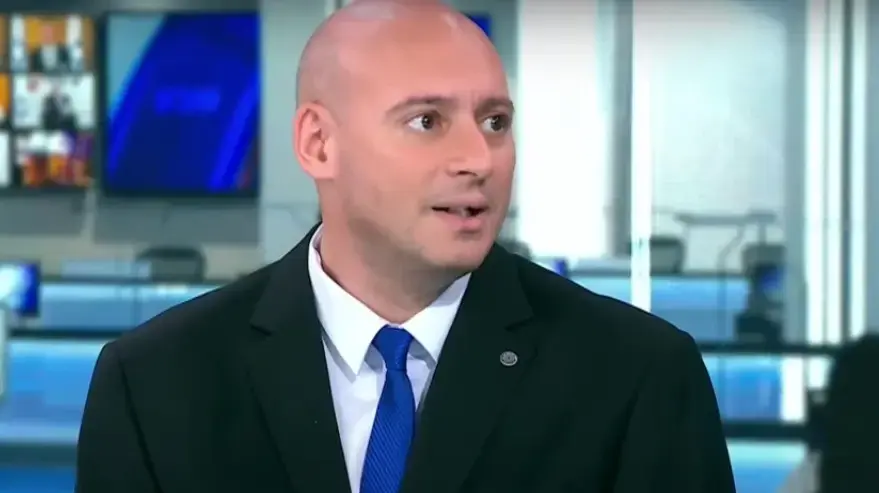The insult, the responsibility, the obligation: When do parents take the keys?
Loss of orientation, memory problems, confusion, all these and more are signs of dementia in adults. But what do you do when it's time to tell Dad "return the keys" and how to do it right?
We love our parents, but when is the time to say "enough" to them?
Dementia and driving (Photo: PR, PR)
"Until recently, my dad was as sharp as I wish I was to function that way, even at age 45," Ido says, to Walla Car. "About a year ago, at 77, he retired and we live 2 miles away. One day he came to visit his grandchildren, only to travel It took him half an hour, but no one took it for granted, completely a private case, except that two weeks later, while we were traveling with him in the car, he got confused again, but this time it was over at the entrance to the opposite lane. He said that everything was fine and that it was just fatigue and let's see you driving at that age, except that things have been deteriorating ever since. E. I was confused with the pedals between the gas and the barks, he told me, We gathered the whole family and told him that the situation required testing and in the meantime we implore him not to drive, but he insists. A week ago he suddenly stopped in a green traffic light, only the scooter rider behind him did not collide. "We know what to do or right, how to do it. We have no doubt that if they take the license, he will go into severe depression. We are at a loss."
More in Walla! NEWS More in Walla! NEWSThe unbearable ease of releasing dangerous drivers
To the full articleDementia and driving (Photo: PR, PR)
With all the grief about it, the likelihood that your family member will also have dementia and the aftermath of the conflict will arise when and how the car keys are taken - no small amount. This is a clinical syndrome that impairs thinking skills and judgment, with a general prevalence in the general population of 1% and significantly increases with age: 5% of those aged 65-74 and 50% of those aged 80 and over.
It is estimated that as of today, the number of dementia patients in Israel is about 120,000. Dementia, including Alzheimer's, undergoes a gradual, painful and frustrating process, in which the ability to concentrate, to judge and orient in a casualty area and, as a result, is also impaired to drive safely.
The insult
The fracture created by the issue is very large. Driving is a key component of many adults' lives and has an effect on their functioning, independence, self-image and allows them to continue to lead a full and meaningful life. The loss of ability to drive means a loss of control. For the patient, this is a terrible insult and unbearable injury, explains Professor Michael Davidson, one of the world's leading researchers and psychiatrists who also serves as the chair of the Israeli Alzheimer's Medical Center. "Although the patient recognizes to some degree the risk of continuing his driving, he will usually not give up on it. , Certainly not in the early stages of the disease. Studies conducted in the field show that seniors give up driving on average only after two years of diagnosis.
One method: To initiate spoilage in the vehicle and "smear" the parents on the duration of the repair
Ford Koga Long-Term Test: In the Garage (Photo: Keenan Cohen, Nir Ben Tovim)
Prof. Jeremiah Heinik and Zvi Dovalecki, who devotes a special chapter to the subject, states that in a study that examined patients with mildly diagnosed Alzheimer's disease, 94% of the respondents defined themselves as safe drivers, but only 41% passed a driving test. In another study, it turned out that all patients with Alzheimer's disease who failed a road driving test defined bone as safe drivers.
The issue is very painful and sensitive, and in a recent post on Alzheimer's - Talking About it on Facebook, quite a few children shared with their sick parents about the difficulty in coping with the decision to take their car keys. "It's a very difficult step - try to get others to stop driving. It's a first step ahead of a lot of decisions you have to make for it - always think one step ahead to prevent disasters, "Miri wrote. Noga, her teammate, also shared "a painful and necessary difficult phase. And the alternative? At best, she will travel and will not know where or let you know where she is and, in the worst case, an accident that will hurt herself or others."
It's already more complicated, but you can also direct "theft" of the car
Dementia and driving (Photo: PR, PR)
The doctors' silence
On the principle level, the conflict around the issue should have been spared from the families. The wording of the law states that the attending physician must report to the Road Safety Medical Institute about persons who may be at risk of driving themselves and others as a result of a disease and / or health condition relevant to safety. However, in practice, the initiating reporting rate of physicians is very low, and in many cases, families are the ones who need to urge the physician to report it.
Professor Joseph Rybeck, former head of the Road Safety Medical Institute, explains that many of the family physicians, psychiatrists and geriatricians who come into contact with the patient avoid "some claim that it is not their job and some do not want to lose clients." The Medical Association also admits that there is a serious problem. In an article posted on their site {I put you the link to see where the material is. It is not necessary to include in the article} It is written that the report raises significant issues of ethics and infiltration of individual rights. Therefore, Prof. Ryback adds, most of the reports come from hospitals and medical centers, but this happens in later stages and in the meantime, patients continue to drive and the problem is rolled out to the family.
There are no easy solutions
But there are also quite a few instances in which, after the patient's license was taken from the Medical Institute for Road Safety, he continues to drive "he just doesn't remember being taken to him," explains Professor Davidson. It turns out that quite a few families are also required to deal with the need to vanish the vehicle. One of the common methods is to explain to the parent that the vehicle is "damaged" in the vehicle ... and as if you take a long repair ... no parts ... will come in another two weeks .. ", Orit offers her friends to the Facebook group.
You can also tell him that the car was stolen, explains Oren "That's exactly what I did, one day I arrived, took his car and parked it in my workplace parking lot. When Dad asked what was going on, I told him I had filed a complaint with the police but they told me it was lost. The car had comprehensive insurance, so there was no question of where the money was either. " In cases where all these tricks do not work, at the disposal of the family, the possibility of applying to the court for appointment of a patient guardian is available. Although the courts are in no hurry to comply with such requests, according to attorney Michael Tausig, a family law expert, a medical record-backed appeal and the use of a vehicle by him, even though the license was taken from it, may be successful. Subject to obtaining a permit from the court - also sell the vehicle.
How to upgrade your vehicle How to upgrade your vehicleFrom now on, a loan of up to NIS 100,000 for each purpose and the customers of all banks is the same
Subject to the terms as Financing Ltd / Diners Financing Ltd and compliance with the underwriting conditions. Failure to pay the loan may result in a charge on arrears and execution proceedings
For a loanThe critical identification
In the end, however, the families' main difficulty is to identify when the time should come when the issue should be flooded with the family member and begin the process of clarifying his driving skills. It is important to emphasize that a diagnosis of mild dementia does not necessarily indicate that the patient is unfit to drive and therefore, the medical literature indicates a number of basic criteria, a kind of "light bulbs" that should be indicated The first signs of impaired driving are traffic offenses, slow or inappropriate responses, Traveling to a destination that takes longer than usual, or not reaching a destination at all.
In the book by Prof. Jeremiah Heinik and Zvi Dovalecki, who dedicates a special chapter to the subject, the family members who stay with their loved ones in the vehicle must pay attention to the difficulties that arise in the following situations: lane changes, problems with overtaking or stopping and braking, late signs and signage, difficulties in driving back and keeping On the location of the vehicle in the lane. Also, it is forbidden to ignore a situation where other passenger's verbal instructions are not properly and timely interpreted. The difficulty of dealing with multiple stimuli at the same time, is very problematic on the road and impairs the ability to respond quickly to an emergency. Reducing travel distances and avoiding sweeping driving on rain or at night, all indicate a reduction in driving capacity.









